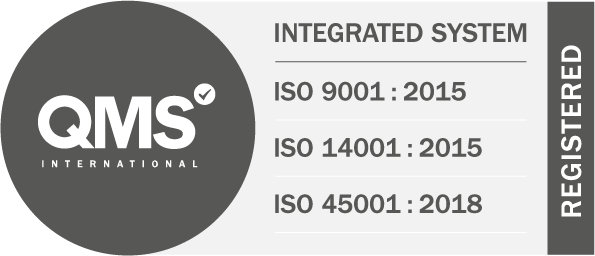What does the new Labour government mean for fleets?
Labour’s landslide victory after 14 years of the Conservatives being in power brings a new plan for the automotive sector. We look at the pledges Labour has made and the key issues the fleet industry wants the new government to address.
Transport Secretary Louise Haigh, who held the shadow transport brief from 2021, will be guided by Labour’s manifesto commitments, which are based on Driving a Growing Economy: Labour’s Plan for the Automotive Sector, published in October 2023.
What has Labour promised fleets so far?
In its manifesto, Labour pledged to:
Restore the phase-out date of 2030 for new cars with internal combustion engines (ICE). Labour previously described the Conservative’s decision to push back the phase-out date to 2035 as a “huge setback for manufacturers who will have spent enormous amounts of money and time on the basis of these targets”.
Accelerate the roll out of electric vehicle (EV) charge points. In its automotive sector plan Labour said it would provide “reliable charging networks in every part of the country” and set new binding targets and then delegate responsibility to regional and local levels. It also said it wants to remove “unnecessary planning barriers” for rapid chargers, and work to expand grid capacity to “allow businesses to install their own charging infrastructure for their fleets more quickly”.
Implement a standardised battery health certification scheme for used EVs. Labour believes that this is “the best driver to stimulate demand”.
Allocate £1.5 billion to new gigafactories. Labour said in its automotive sector plan that it “knows that future electric vehicle manufacturing will migrate to where electric batteries are being made” and that “building British capacity at pace has to be central to our plans for the sector”.
Replace the Apprenticeship Levy with a Growth and Skills Levy. This could help address the skills gap identified by the Institute for the Motor Industry (IMI), which predicts a shortfall of 25,100 EV-trained TechSafe technicians by 2030.
Allocate £500 million to support the manufacturing of green hydrogen. Labour indicated in its automotive sector plan that it would be “technology-agnostic” with its long-term planning and that it doesn’t want to “stand in the way of the development of alternative solutions alongside lithium-ion battery capabilities, including hydrogen”.
Tackle the “soaring cost” of car insurance. Although Labour’s manifesto doesn’t go into detail, Louise Haigh previously said on X (formerly known as Twitter) that Labour would “crack down on rip off costs and call in the regulators”.
Fix an additional one million potholes across England each year. This will be funded by deferring the A27 Arundel bypass.
Although not specifically mentioned in its manifesto, Labour’s automotive sector plan also included:
Introducing an Electric Vehicle Confident labelling requirement on new EVs. This would give information on the carbon footprint of the vehicle’s production and usage relative to an ICE comparison, the real-life range of the vehicle’s battery in different settings, and the expected life of the battery, allowing fleets to compare different models.
Improving the accessibility of chargepoint data. Building on the Public Charge Point Regulations, Labour said it would set “quality standards for information provided on charging apps so that drivers know with confidence that a chargepoint is available or out of order before travelling to the location”.
What are the key issues the fleet sector wants Labour to address?
In the wake of Labour’s victory, the most pressing issues being discussed by the fleet industry are:
The transition to electric vans. Reflex understands how difficult the transition to EV can be for heavier vehicles with challenges around price, payload, range and charging infrastructure. We want the Labour government to clarify whether the 2030 ICE phase-out date applies to vans and how it will be supporting the sector to make the switch.
Clarification about the ZEV mandate. Alongside clarifying the phase-out date for ICE vans, the fleet sector wants certainty about the zero emission vehicle (ZEV) mandate. Although the mandate became law under the Conservatives it’s not clear whether Labour will change the minimum annual targets.
Benefit-in-Kind (BIK) tax beyond 2027/28. The Association of Fleet Professionals (AFP) points out that businesses buying or leasing company cars today don’t know the tax rate their drivers will be charged towards the end of the decade and wants Labour to include extended tax tables in its first Budget or fiscal statement.
EV incentives. There have been lots of calls for the new government to stimulate the used EV market through grants or low-cost loans to consumers. Other incentives include a VAT cut on public charging to 5%. It’s unknown whether Labour has any plans to reinstate the plug-in car grant for new EVs and what will happen to the plug-in van grant and the workplace charging scheme beyond March 2025.
Fuel prices. In the March 2024 Budget, the Conservatives announced a fuel duty freeze for the 13th year in a row and at the time the now prime minister Keir Starmer supported the move. The fleet sector, particularly van fleets which are still predominantly diesel, want to know whether Labour will continue this approach and how else it will tackle fuel prices.
To get the answers to some of these questions, it’s likely we’ll have to wait for the new Labour government’s first Budget. Chancellor Rachel Reeves has said she will announce a date for the Budget before the summer recess.
Find out more
Find out how Reflex Vehicle Hire can help your company.
Call 0330 460 9913 or visit our contact us page.







@2x.png)

